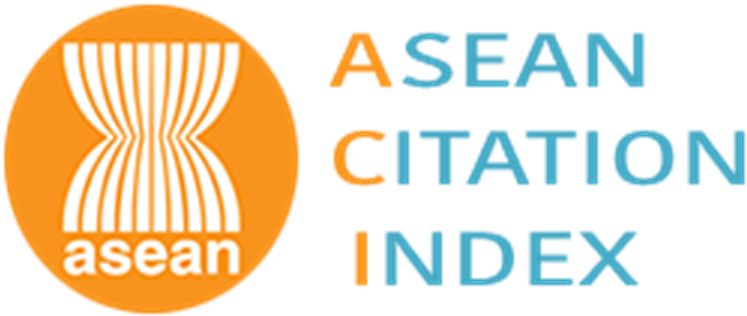การประมาณค่าช่องสัญญาณด้วยภาวะน่าจะเป็นสูงสุดสำหรับการไกล่เกลี่ยความผิดพลาดแบบปรับอัตราเข้ารหัสเหมาะสมกับการกระจายกุญแจรหัสลับเชิงควอนตัม
Abstract
การกระจายกุญแจรหัสลับเชิงควอนตัมถือเป็นหนึ่งในเทคโนโลยีความปลอดภัยด้านการสื่อสาร โดยอาศัยหลักกลศาสตร์ควอนตัมเพื่อกำเนิดและแลกเปลี่ยนข้อมูลกุญแจรหัสลับระหว่างคู่สื่อสารให้มีความปลอดภัยสูงสุดสำหรับระบบวิทยาการรหัสลับ ซึ่งต้องอาศัยกระบวนการไกล่เกลี่ยความผิดพลาดเพื่อจุดประสงค์ในการยืนยันความถูกต้องของข้อมูลกุญแจรหัสลับระหว่างคู่สื่อสารให้มีค่าที่ตรงกัน ในบทความนี้ นำเสนอวิธีการประมาณค่าอัตราความผิดพลาดของช่องสัญญาณเชิงควอนตัมบนพื้นฐานของการประมาณค่าภาวะน่าจะเป็นสูงสุดจากชุดข้อมูลซินโดรมในระหว่างขั้นตอนการไกล่เกลี่ยความผิดพลาดสำหรับการปรับค่าอัตราการเข้ารหัสให้เหมาะสมกับความผิดพลาดของบิตข้อมูลกุญแจเชิงควอนตัมที่เกิดขึ้นในแต่ละช่วงเวลาด้วยรหัสตรวจสอบพาริตี้แบบความหนาแน่นต่ำ ตลอดจนการนำมาประยุกต์ใช้แทนขั้นตอนการเปิดเผยบิตข้อมูลกุญแจบางส่วนที่สูญเสียไปในการประมาณค่าความผิดพลาดแบบดั้งเดิม นำไปสู่ผลลัพธ์ของขนาดบิตข้อมูลกุญแจที่เพิ่มสูงขึ้น โดยจากการวิเคราะห์และทดสอบผลพบว่า วิธีการที่นำเสนอให้ความแม่นยำในการประมาณค่าอัตราความผิดพลาดครอบคลุมเงื่อนไขของการกระจายกุญแจรหัสลับเชิงควอนตัม นำไปสู่การเพิ่มประสิทธิภาพการไกล่เกลี่ยความผิดพลาดที่สูงขึ้นทั้งในด้านความปลอดภัยและอัตราการกำเนิดกุญแจรหัสลับ สนับสนุนการประยุกต์ใช้งานจริงในระบบการกระจายกุญแจรหัสลับเชิงควอนตัมความเร็วสูง
Quantum Key Distribution (QKD), one of the communication security technologies, employs the properties of quantum mechanics to guarantee and exchange the perfectly-secured key generation between two legitimate parties for cryptographic purposes. The reconciliation process is required to correct the transmission error after the distribution of quantum objects. In this paper, the channel parameter estimation is proposed to estimate the error rate in the quantum channel by using the Maximum-Likelihood Estimation (MLE) based on the syndrome information for rate-adaptive reconciliation. The specific Low-Density Parity-Check (LDPC) codes are adapted to optimize their coding rates responding to the possible cases of error in QKD. The proposed method can be applied to avoid wasting sample keys in the traditional channel estimation, and led to increase the final secret key length. The simulation results show an accuracy of the estimated quantum bit error rate (QBER) for covering the range in QKD system. The gain of rate-adaptive reconciliation based on MLE confirms an improvement in the reconciliation efficiency that significantly impacts on the achievable secret key generation rate for high QKD throughput applications.
Keywords
DOI: 10.14416/j.kmutnb.2016.04.004
ISSN: 2985-2145





